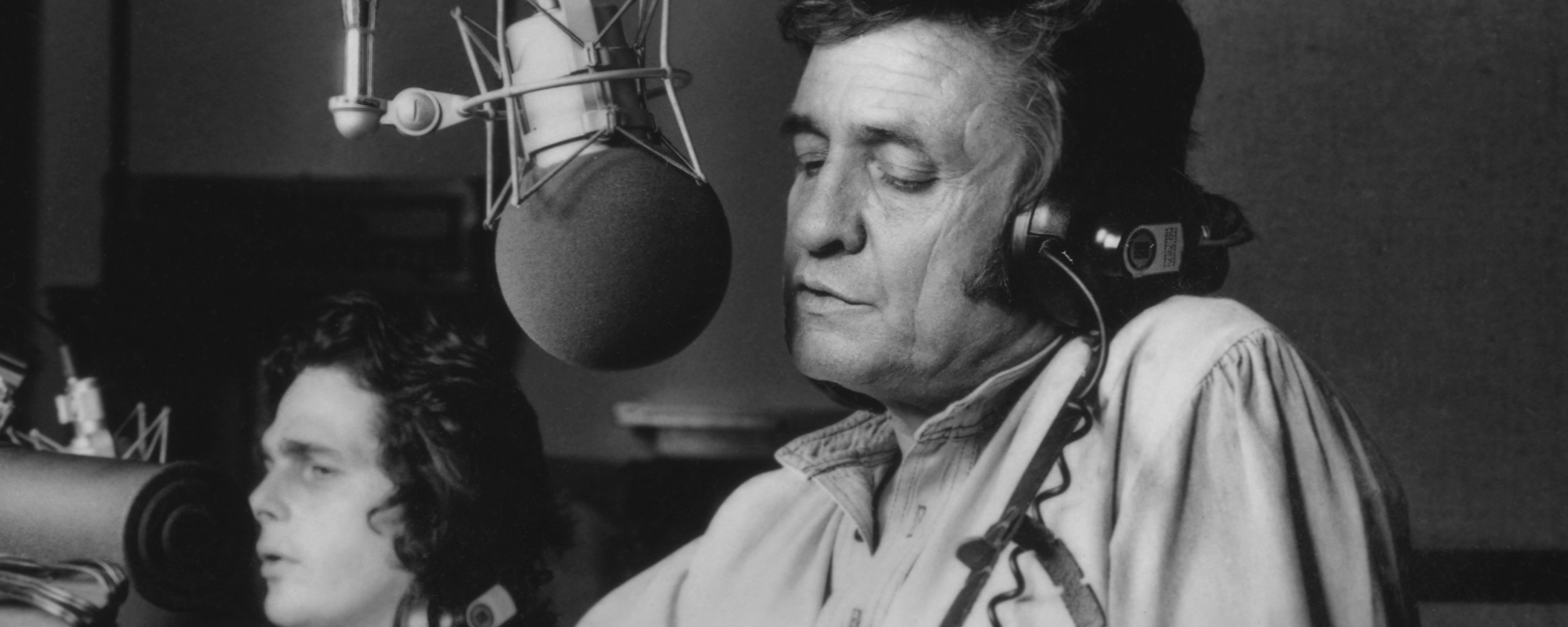What resonates with an audience might not resonate with the artist, which was apparently the case when Pink Floyd scored their first No. 1 album in their native U.K. with Atom Heart Mother, despite virtually all members disliking the record. (David Gilmour went so far as to call it a “load of rubbish,” per Guitar World Presents Pink Floyd.) Critics didn’t seem to know what to make of it either. In print reviews, the album seemed lackluster and directionless. On the U.K. chart, it was a smash success. Their first No. 1 album predated their better-known works, like Dark Side of the Moon and Wish You Were Here, by several years. Still, it was a feather in their cap.
Videos by American Songwriter
Pink Floyd released their divisive fifth album, Atom Heart Mother, on October 2, 1970. Fans of that record are mostly diehard Floyd fans, although some tracks, like “Summer ‘68” and “Fat Old Sun”, grew in popularity over the years. That only loyalists would enjoy the album isn’t all that surprising, given its sheer lack of commercial sensibility. Like Ummagumma that came before it, the band split Atom Heart Mother into two concepts. The A-side featured the entire band in an orchestral suite that takes up the entire side of the record. The B-side features individual contributions of Gilmour, Roger Waters, Nick Mason, and Richard Wright.
To the band’s credit, they were still in a considerable state of flux. Syd Barrett, one of the band’s original members, had only just left two years before. Pink Floyd was still finding their footing with Gilmour and Waters at the helm. Their lack of musical and creative direction inevitably seeped into the albums they created—Atom Heart Mother being no small exception.
Pink Floyd Has Since Spoken Negatively of Their First No. 1 Album
Unless you are a voracious Pink Floyd listener, there’s a high likelihood that you recognize the album cover for Atom Heart Mother more than the actual songs. The pastoral photograph of a cow standing in a field has become synonymous with the band’s animalistic imagery, even if the songs on that album failed to remain in the most popular rock canon. Adding on to his “load of rubbish” comment, David Gilmour said, “We were at a real down point. We didn’t know what on earth we were doing or trying to do at the time. None of us. We were really out there. I think we were scraping the barrel a bit.”
And indeed, the entire production process seemed haphazard at best. The music itself came from loose jam sessions that the band eventually turned into a lush if not unremarkable orchestral arrangement. Producers and arrangers butted heads with instrumentalists until threats of physical violence became necessary. Syd Barrett wandered into the studio, unrecognizable to anyone there. Perhaps the least conflict-ridden anecdote about the record is how Roger Waters named it after spotting a newspaper article about a pregnant woman using an atomic-powered pacemaker. The bassist lifted the title verbatim: Atom Heart Mother. “That’s a nice name,” he said. “We’ll call it that.”
Despite seemingly everyone’s qualms with the album, Atom Heart Mother fit the style of the times. Rock bands were leaning into operas, concertos, and symphonies, which meant that Pink Floyd’s fifth album was conveniently en vogue. (That trend hadn’t quite made its way over to North America, and the album peaked at a very modest No. 39 in Canada and No. 55 in the U.S.)
Photo by Michael Ochs Archives/Getty Images












Leave a Reply
Only members can comment. Become a member. Already a member? Log in.